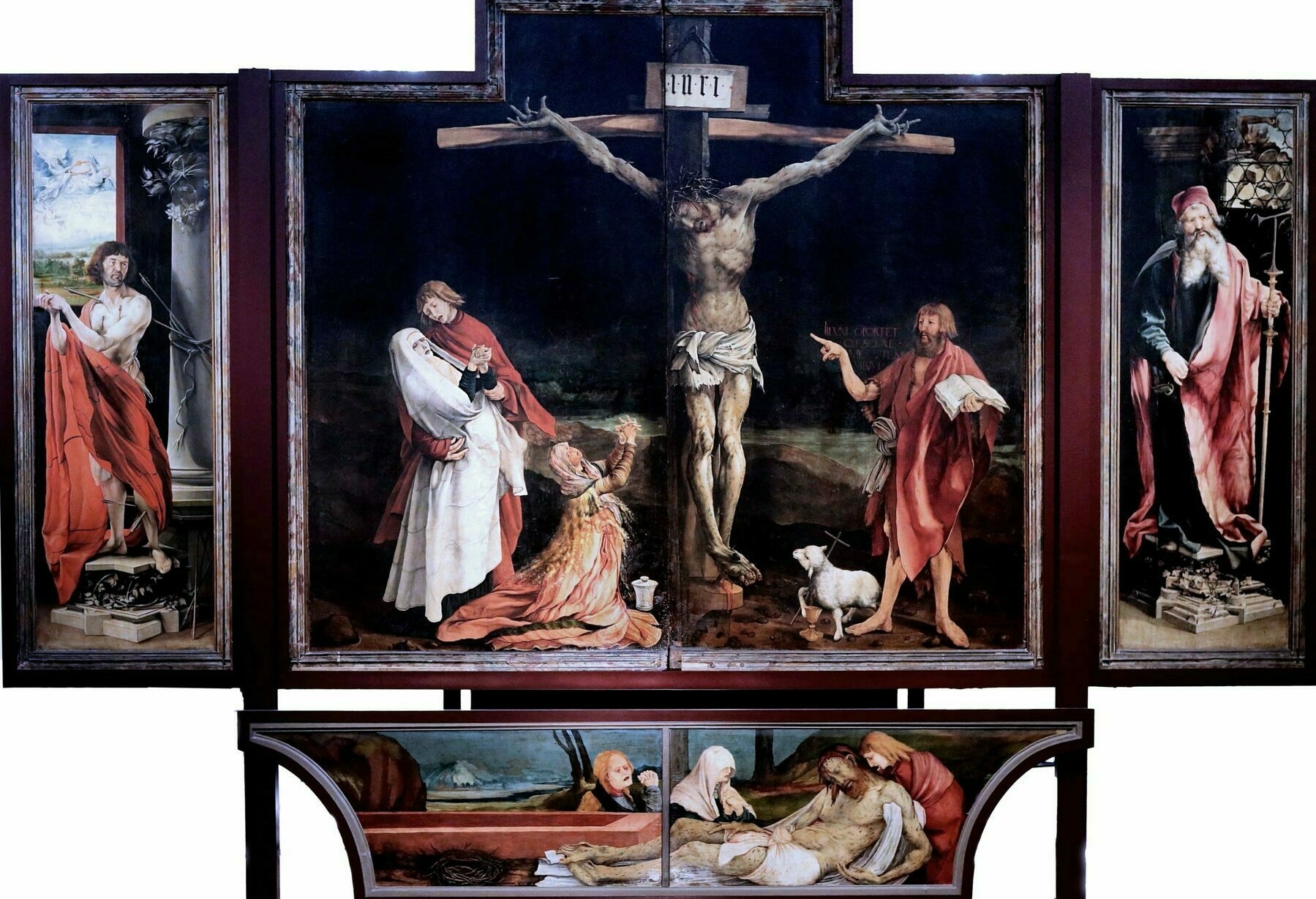Prayer at the Grunewald Alter
Prayer for Persons Troubled in Mind or Conscience
Blessed Lord, the Father of mercies, and the God of all comforts: We beseech thee, took down in pity and com- passion upon this thy afflicted servant. Thou writest bit- ter things against him, and makest him to possess his former iniq- uities; thy wrath lieth hard upon him, and his soul is full of trou- ble: But, O merciful God, who hast written thy holy Word for our learning, that we, through patience and comfort of thy holy Scriptures, might have hope; give him a right understanding of himself, and of thy threats and promises; that he may neither cast away his confidence in thee, nor place it any where but in thee. Give him strength against all his temptations, and heal all his distempers. Break not the bruised reed, nor quench the smok- ing flax. Shut not up thy tender mercies in displeasure; but make him to hear of joy and gladness, that the bones which thou hast broken may rejoice. Deliver him from fear of the enemy, and lift up the light of thy countenance upon him, and give him peace, through the merits and mediation of Jesus Christ our Lord. Amen
-The Book of Common Prayer (1662).
